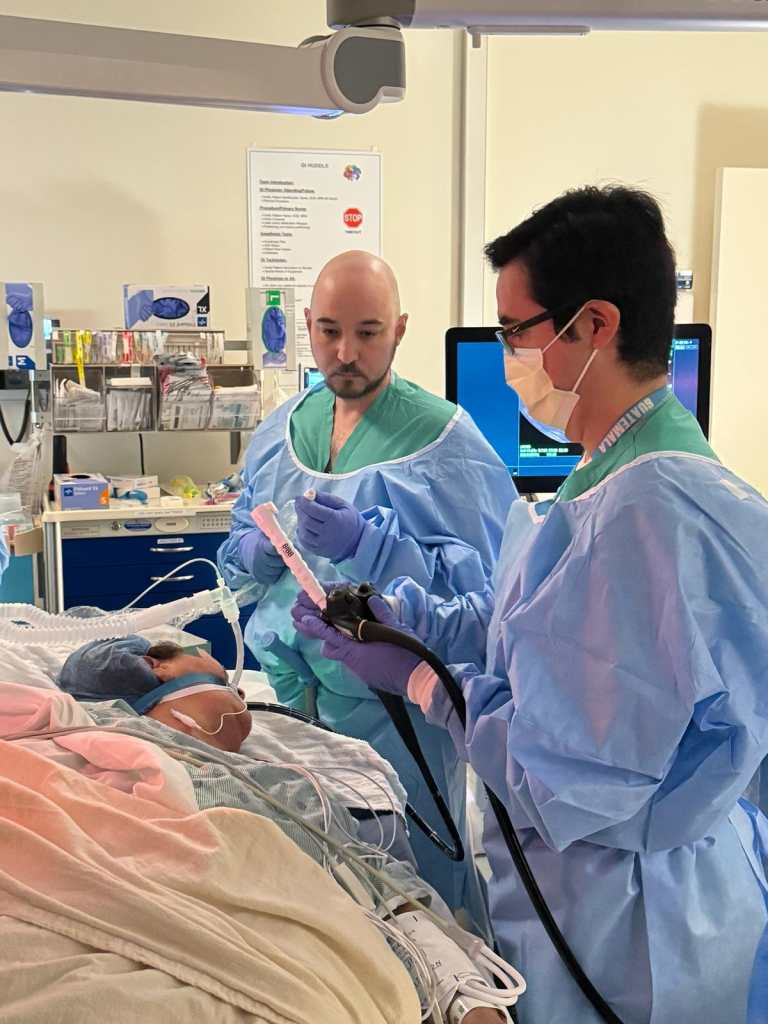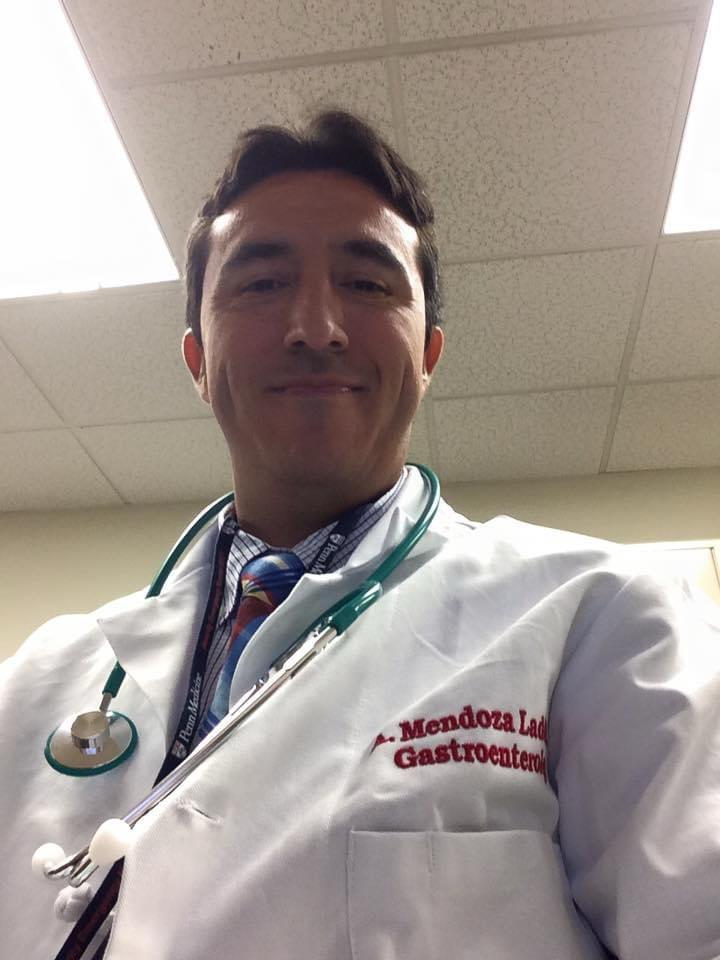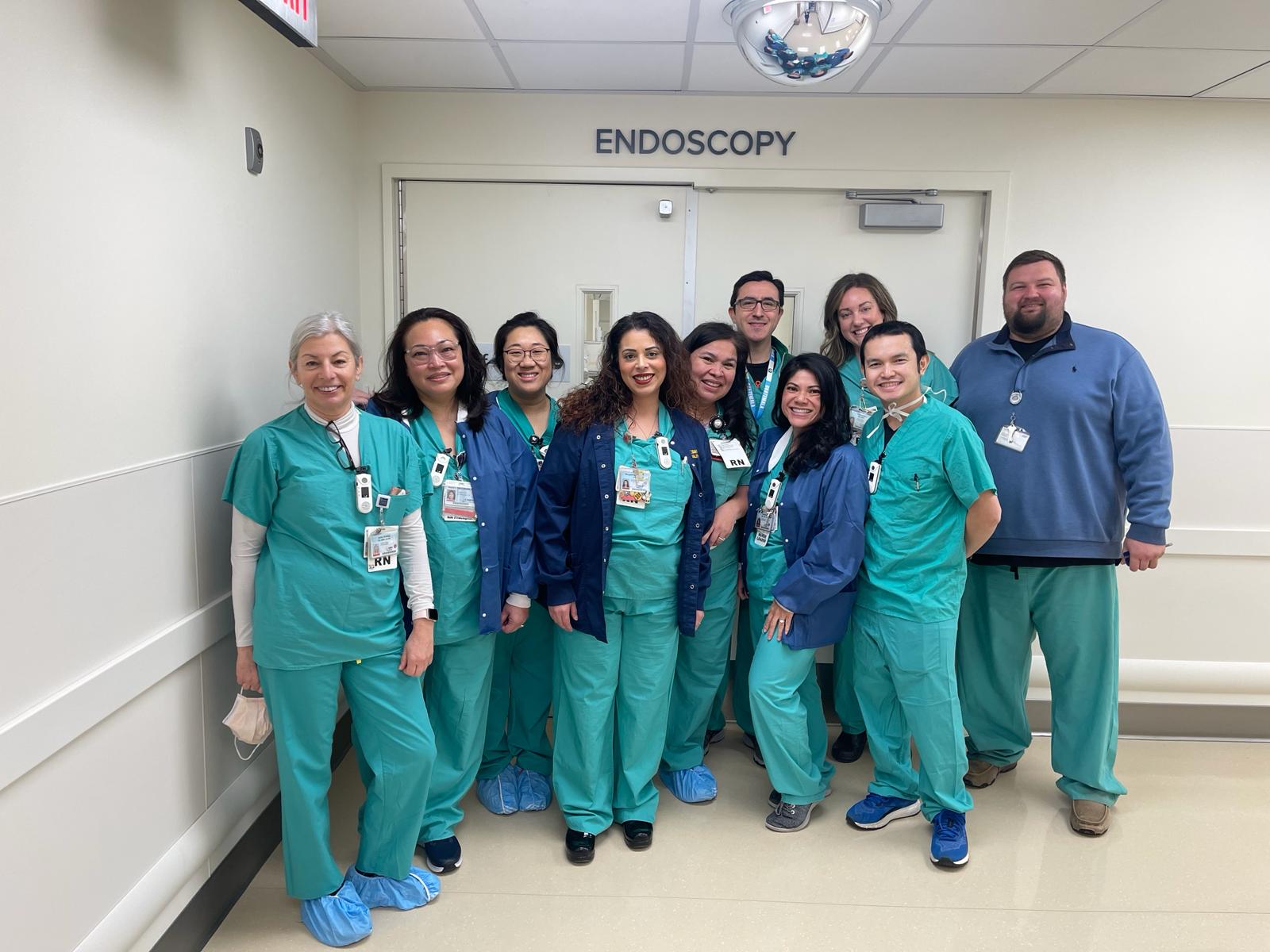Mid-February Antonio Mendoza Ladd, MD, medical director of gastrointestinal endoscopy and its endoscopy team at the University of California, Sacramento, UC Davis Health, He performed the first biopsy in the United States using a new device used for endoscopic ultrasound (EUS) tissue sampling for all indications in the gastrointestinal tract, including the pancreas, stomach, esophagus, lymph nodes, and liver.
Mendoza-Ladd and his team used the tool to profile three cases that were the first to be performed in the United States with this system. It took nearly a year of paperwork to transport him to the United States. The process is similar to a regular endoscopy, where a camera is inserted into the patient's mouth. The difference is that it contains a type of small drill that rotates at high speed through which it is possible to take samples from the affected organs. The difference is that this device takes a larger sample unlike other current devices. The equipment is called EndoDrill GL.
Dr. Mendoza Ladd's research focuses primarily on exploring innovative applications of endoscopy in the treatment of gastrointestinal cancer.

How did you become a doctor?
Mendoza taught high school at the defunct Los Arcos School in District 10. At that time he was not sure what to study, and it was the aptitude test that helped him. His options were dentistry, veterinary medicine and medicine, and he chose the latter.
“It is a difficult and energy-intensive profession,” he says. He studied at the University of San Carlos and did his supervised training in Chiquimula.
Mendoza Ladd wanted to become a cardiologist and went to study his specialty in Mexico. In this neighboring country, training costs are not paid.
At the moment of decision, some resident doctors from Utah arrived at the hospital where he was practicing in Guatemala and Mendoza Ladd translated for them. There he began to see the difference between countries.
They asked me why I didn't do the training in the US, my question was did they pay for it and when they told me yes, I started learning all the procedures which took time and I had to save almost a year to get abroad. Thus he arrived at the Texas Medina School, Tech University, in El Paso, Texas; He was also at the University of New Mexico and currently at UCLA.

As part of her story, she remembers that going to university required a lot of work and effort. “I started working in the store of my mother, Celia Eugenia Ladd Oliva, when I was 14 years old because the employee who had stolen a lot of money from her,” the doctor recalls what happened to her, and then I decided to fire her. In those years the economic situation was not very stable. “We moved six times over a 10-year period because she could afford less and less rent.”
Their job consisted of arranging merchandise, replenishing coolers, serving people, cleaning, and sweeping, among other details. He felt frustrated because he had to work when his classmates at school and in the neighborhood had nothing to do but rest or play all afternoon after school. “It upset me to see my schoolmates going on Easter break, and I had to stay working in the store,” he says.
Soon his discomfort with the job became noticeable and people began to complain that the young man was treating them poorly. “My mother scolded me many times because she always said we live off people…but my teenage mind didn't understand that,” he adds.

On Saturdays, he would negotiate with his mother to let him change his shift so he could play soccer in the afternoon with people in the neighborhood. The family's economic situation was getting worse and the best supplier was the store, it was called Tenda Shiny and was located in the Loma Linda neighborhood, in District 11.
“Some neighbors complained about the sale of alcoholic beverages, and there were even lawsuits to shut them down… When I look back, I understand a little the motives of these neighbors, but what bothers me is that they could not see that this is our only source of livelihood.” “If the store was closed, I would never be able to get to my place,” Mendoza-Ladd says.
“When I graduated from school and chose to study medicine, I made it my goal to be the ‘best doctor’ I could be, because that is what would get me and my mother out of that drudgery in the shop,” he says. .

“My books were taken away and I had to study in the store while I did the mandatory chores. Many customers got annoyed with me because I would turn off their music when I arrived so they could study,” he recalls. He graduated seventh in a class of over 200 students with a grade point average of 81.98.
“Over the years, I've learned to view my store experience differently. What I described as my bad luck and worst misfortune was actually my best luck and greatest blessing because it taught me the value of things. Those years in the store taught me that things are expensive, and that it's just a matter of saying “give me.” I can say that the foundation of work ethic was given to me by my parents, and the shop was responsible for installing the walls and floors, and it was easier for me to put the roof on “building my life,” he reflects.
““I want to share this story with others who are in this situation at this moment and know that it is possible to overcome it.” Mendoza-Ladd concludes.

“Social media evangelist. Student. Reader. Troublemaker. Typical introvert.”

:quality(85)/cloudfront-us-east-1.images.arcpublishing.com/infobae/TEQF6EONZRFGLLLDIDD4L2O4EE.jpg)

:quality(75)/cloudfront-us-east-1.images.arcpublishing.com/elcomercio/XU32LRAEZFDDPNVHLFU3CKVBYY.jpg)



More Stories
Bank of America has taken a drastic measure that could affect thousands of customers
With the effect of lifting, illuminating and moisturizing
$1 bills can cost up to $150,000 due to a printing error